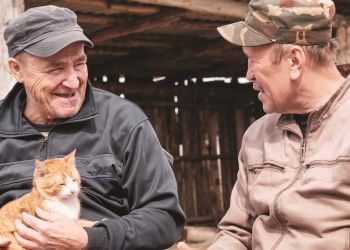On August 26, 2016, as a further safety measure against the emerging Zika virus outbreak, the U.S. Food and Drug Administration (FDA) issued a revised guidance recommending universal testing of donated Whole Blood and blood components for Zika virus in the U.S. and its territories. These revised recommendations are designed to reduce the risk of Zika virus transmission by transfusion of blood and blood components, given much uncertainty regarding the nature and extent of Zika virus transmission. The revised guidance is for immediate implementation and replaces earlier guidance issued by FDA in February and March of this year (“Recommendations for Donor Screening, Deferral, and Product Management to Reduce the Risk of Transfusion-Transmission of Zika Virus” and “Questions and Answers Regarding “Recommendations for Donor Screening, Deferral, and Product Management to Reduce the Risk of Transfusion-Transmission of Zika Virus”).
FDA now recommends the testing of all donations in the United States with an investigational donor screening test for Zika virus or with a licensed screening test when one becomes available. Alternatively, because an FDA approved pathogen reduction technology is available for plasma and certain platelet products, blood establishments may use such technology for those products instead of blood screening testing.
At the present time, only investigational screening tests for Zika virus are available. The manufacturers of these tests are distributing the screening tests for use under an investigational new drug application (IND) on file with the FDA. FDA’s prior guidance only recommended these actions in areas with active Zika virus transmission by mosquitoes.
Because all donations will be tested using an investigational screening test for Zika virus, or be pathogen-reduced using a licensed pathogen reduction device, FDA is no longer recommending that blood establishments provide donor educational material or defer donors with risk factors for Zika virus based on the donor history questionnaire. Blood establishments may therefore discontinue these activities once the recommendations for testing or pathogen reduction are implemented.
These recommendations will be phased in by location over the course of 12 weeks based on the potential local risk of Zika virus transmission through the blood supply as detailed in the guidance document. The recommendations will remain in place until there is sufficient evidence to determine that the risk to the blood supply from the Zika virus has changed.
- Blood establishments that collect blood and blood components in U.S. states and territories with locally acquired mosquito-borne cases of Zika virus (i.e., Florida and Puerto Rico) should implement the recommendations immediately. All blood donations in Florida and Puerto Rico are currently being tested with the investigational donor screening tests.
- Because of their proximity or epidemiologic linkage to areas with locally acquired mosquito-borne cases of Zika virus, blood establishments that collect in Alabama, Arizona, California, Georgia, Hawaii, Louisiana, Mississippi, New Mexico, New York, South Carolina, and Texas should implement the recommendations within four weeks of the guidance issue date.
- Blood establishments that collect in all other states and territories should implement the recommendations within 12 weeks of the guidance issue date.
As part of its public health mission, the FDA helps ensure that the blood people receive is as safe as possible. The FDA is updating its guidance after careful consideration of all available scientific evidence, following consultation with other public health agencies, and in consideration of the potential serious health consequences to children born to women exposed to Zika virus during pregnancy. Although the FDA anticipates some logistic challenges in implementing universal screening for Zika virus, the testing of donations is already taking place in Florida and Puerto Rico—the two U.S. areas with local transmission—and has shown to be beneficial in identifying donations infected with Zika virus, as well as in certain other areas of the U.S.
Expanded testing will continue to reduce the risk for transmission of Zika virus through the U.S. blood supply and facilitate the availability of safe blood to all who need it in the U.S. The FDA is working with the manufacturers of the investigational screening tests to help assure an adequate supply of test kits will be available as the universal testing is phased in, and it will work with blood collection establishments to facilitate the implementation of this important measure to help protect public health. This complements FDA’s other efforts to respond to the Zika virus outbreak, including its efforts to maintain the safety of our nation’s supply of human cells, tissues, and cellular and tissue-based products, support the development and availability of diagnostic tests that may be useful for identifying the presence of or prior exposure to the Zika virus, work with commercial and government developers to advance the development of investigational vaccines and therapeutics, and review the use of innovative strategies to help suppress the population of virus-carrying mosquitoes.
For questions, please contact [email protected], or call FDA/CBER at: 800-835-4709 or 240-402-8010. Email for consumers: [email protected].
For more information:
- Full Press Release
- Revised Recommendations for Reducing the Risk of Zika Virus Transmission by Blood and Blood Components
- FDA: Zika Virus Response Updates from FDA
- FDA: Keeping Blood Transfusions Safe
To receive FDA updates:
- Subscribe to email alerts on emergency preparedness and response topics from FDA, including emerging diseases like Zika: http://www.fda.gov/MedicalCountermeasures
- Follow FDA on Twitter @FDA_MCMi, @FDACBER, and more








